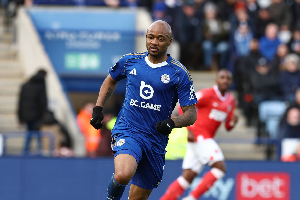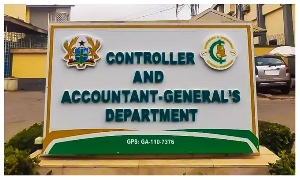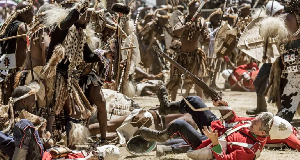The year 2018 has largely been one of activity for the Akufo-Addo government as it entered its second year and marked the beginning of implementation of some of its promises to the people of Ghana.
Most of the news for the year was about what government would do and how it was going to do them as well as the potential reaction that from the public, particularly opposition parties.
Some of the incidents that grabbed the headlines took the nation by surprise while others shook the very core of the nation leaving everyone in awe. Generally, it was a mixed bag of issues which cut across various sectors of the economy.
JANUARY
The year started with corruption allegations thrown at the government in what came to be known as the “Cash for Seat scandal” in which the Trade and Industry Ministry was accused of having ‘hugely’ levied expatriates at the Ghana Expatriate Business Awards held in Accra.
The expatriates were allegedly asked by the ministry to pay from 25,000 to 100,000 dollars to earn them a seat at the event close to the President, Nana Akufo-Addo.
A five-member committee was set up to investigate the matter.
The committee eventually presented two separate reports to parliament after the minority members disagreed with the majority members on the committee.
While trying to find a resting place for the corruption scandal, the President named Martin Amidu as the Special Prosecutor. Amidu’s appointment was big news considering that establishment of the office of the Special Prosecutor was a fulfilled campaign promise, and more so because Mr. Amidu was from the opposition National Democratic Congress.
Around the same time, the Vice president, Dr.Mahamudu Bawumia, who was said to have been in a critical condition, was flown to the United Kingdom to seek medical care; an issue that generated headlines and discussions in the country.
January was crowned with the infamous leaked sex tape of student and a headteacher of the Breman Edumanu Senior High School. The sex act, which was performed on a kitchen stool, became the “kitchen stool scandal”.
FEBRUARY
February came with a rather bigger one; the trial and jailing of Former National Coordinator of the erstwhile National Youth Employment Programme (NYEP), Abuga Pele and businessman, Philip Akpeena Assibit.
MARCH
The Ghana-US military agreement controversy was among the hottest issue in March but despite the overwhelming public outcry, parliament passed the agreement even though the minority staged a walkout.
Then there was the issue of the design of the National Cathedral being unveiled by the president, which later became a seed for another big controversy later in the year .
NDC firebrand Koko Anyidoho grabbed the headlines of newspapers, online portals and television bulletins for allegedly making some treasonable comments on radio. He was picked up by the Police CID and investigated.
APRIL
April was not also free from corruption scandals as the visas of persons alleged to be ‘fake’ journalists were cancelled, triggering the suspension of Deputy Sports Minister and National Sports Authority boss.
MAY
In May, the core of the nation literally shook as Anas Aremeyaw Anas screened portions of his investigative piece on corruption in the country’s football which he titled ‘Number 12’.
President Akufo-Addo who viewed portions of the documentary before the public screening, caused the arrest the then Ghana Football Association (GFA) president, Kwesi Nyantakyi, for allegedly using his name to defraud by false pretenses.
Meanwhile, the President had launched the Nation Builders Corps (NABCO) on May 1 in Kumasi promising to provide jobs to about 100, 000 young men and women.
There was also an assault of a journalist by a sympathizer of the New Patriotic Party, Hajia Fati, prior to the party’s National Delegates Conference.
Around the same time, civil society group, IMANI grabbed the Ministry of Communication by its neck on issues pertaining to a deal with Kelni-GvG.
JUNE
In June, Anas Aremeyaw Anas officially began a nationwide screening of the Number 12 investigative piece.
In the same month, former Electoral Commission Chair, Charlotte Osei and her two deputies were removed from office by the president for stated “misbehaviour” and “incompetence”
Then came the shocker, the sudden demise of Former Vice President, Paa Kwesi Bekoe Amissah-Arthur.
JULY
President Akufo-Addo named former Executive Director of the Institute of Economic Affairs (IEA), Jean Adukwei Mensa as the new Electoral Commission Chair and Mr. Samuel Tettey and Dr. Eric Asare Bossman as deputies.
In the same month, Nene Amegatcher and others judges were nominated as Supreme Court justices.
The month also saw the incident which was later christened “No bed syndrome”, the Midland Savings and Loans police brutality and the police killing of the seven persons in Kumasi for allegedly being armed robbers but were later found to be innocent.
And just before the month ended, the government introduced the double-track system into the Free Senior High School.
AUGUST
The demise of the former United Nations Secretary General, Kofi Anna, was high in the news in August. It came with a certain cloud of attraction across the globe with eyes zooming in on Ghana.
The firing of Energy Minister, Boakye Agyarko over the controversial renegotiated Ameri deal also got a lot of attention in the media space.
Later in the month, a serious crisis hit the banking sector as the Bank of Ghana revoked the licences of five banks over breaches of the law and for being insolvent, and accordingly merged them to form the Consolidated Bank of Ghana.
SEPTEMBER
In September, owners of one of the collapsed banks, Unibank and its affiliates were dragged to court for causing financial loss to the state.
Also, the Securities and Exchange Commission (SEC) after several warnings, eventually ordered the shutdown of MenzGold, something that marked the beginning of the woes of many unsuspecting Ghanaians who had invested huge sums of money in the gold-dealing company.
And just before the month ended, the nation was hit with another corruption allegation against the Ghana Maritime Authority Chief Executive. He was accused of spending a total of 10,652.05 cedis on lunch for eight persons in a single meeting last year. He came out to justify his actions.
OCTOBER
October was largely dominated by issues in the education sector. These included the legal battle between the Management of the University of Education, Winneba (UEW), and the former Vice Chancellor, Professor Avoke in which Supreme Court quashed a High Court ruling on Avoke’s removal.
The Kwame Nkrumah University of Science and Technology student riot which eventually led to the temporary closure of the school was also dominated news headlines in October. It came with a certain ‘power play’ within the ranks of government and the University management.
Then there was also the issue of the then Deputy National Organizer of the National Democratic Congress (NDC) Joshua Akamba being accused of inciting the students of Tempane Senior High School against the government.
The headmaster of the school was eventually asked to step aside, a directive which angered the students to later demonstrat for the reinstatement of their headmaster. Events of the issue led to the closure of the school.
NOVEMBER
November came with a lot of advocacy by civil society groups and ordinary citizens demanding from the government what they deemed their rights. Notably among the advocacies and campaigns is the Adentan residents’ demonstration which forced the government to commence work on the Madina-Adentan highway.
The Media Coalition on the Right to Information Bill was also high on their demands to have the Right to Information Bill passed. As part of the campaign, a Red Friday was declared.
DECEMBER
The very final month of the year was largely politics, especially within the NDC. The other major issues that got the nation talking include government’s agreement with Zipline International to have essential medical supplies delivered by drones to remote areas across the country.
The referendum to create six new administrative regions and its attendant issues was the major thing which climaxed the year and matters are likely to spill into 2019 considering that regional capital towns for these regions are yet to be assigned.
Ahead of the referendum, the new leadership of the Electoral Commission ditched the Commission’s logo introduced by Charlotte Osei introduced ahead of the 2016 general elections.
Also, the Ameri deal was refined and re-laid before parliament.
General News of Monday, 31 December 2018
Source: 3news.com













